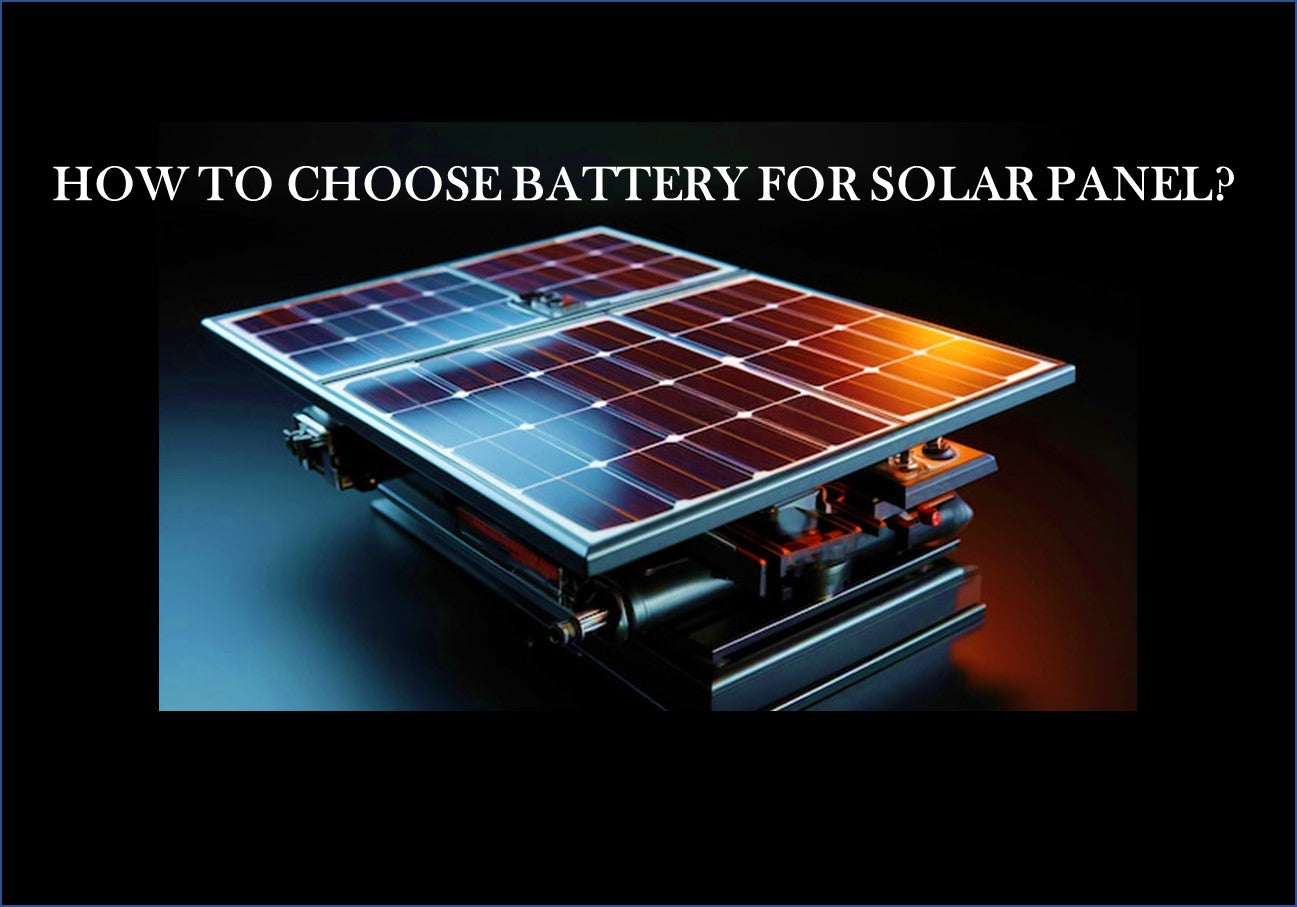How To Choose Battery For Solar Panel?
Solar panels provide an excellent means of producing clean, renewable energy for your home in Ireland.
What may you do if this power could be harnessed even on dark days? The solution lies with solar battery storage systems.
During the daytime, when more energy is generated than is needed, it can be stored for use at night or during cloudy spells thus maximizing self-sufficiency and possibly cutting down on grid reliance.
However, how to choose battery for solar panel? Consider various battery options available, selecting the perfect one for your needs can be overwhelming.
This guide will help you with the knowledge to make an informed decision when choosing a solar battery for your Irish home.
How to choose battery for solar panel?
Battery Type:
1. Lithium-ion battery
Compared with traditional battery technology, lithium-ion batteries. Charge faster, last longer, and have higher power density for more battery life in a lighter package.
2. Lead acid battery
Lead acid batteries are cost- effective and reliable but have a shorter lifespan and lower energy density compared to newer battery technologies like lithium-ion batteries.
3. Battery capacity
The battery capacity of solar panels refers to the amount of energy they can store for later use. It is crucial to consider the battery capacity when designing a solar power system to ensure you have enough stored energy to meat your energy needs during the period of low sunlight or at night.
Hear is rough estimate for Ireland:
- Average Irish household consumption: 8.7 kWh/day
- Battery capacity example: 5 kWh (covers most of your evening usage)
4. Depth of discharge (DOD)
The depth of discharge (DoD) of solar panels refers to the percentage of a battery's capacity that has been used relative to its total capacity.
In solar energy systems, understanding the DoD is crucial for maintaining battery health and longevity.
A higher DoD means more of the battery's capacity is being utilized, which can increase wear and decrease lifespan if frequently deep-cycled.
Optimal management of DoD ensures efficient energy use and prolongs the battery’s operational life, balancing between maximizing energy extraction and maintaining durability of the storage system.
5. Power Rating (kW)
Measured in kilowatts (kW), this reflects the maximum rate at which the battery can deliver power.
6. Round-Trip Efficiency
This percentage shows how well the energy cycle performs. It shows how much usable energy is returned compared to what was stored. You should look for batteries with high round-trip efficiency (ideally over 90%).
7. Battery Chemistry
Sunlight to electricity battery chemistry involves converting solar power into electrical energy and storing it as chemical energy.
This usually requires certain materials and chemical compounds that facilitate efficient storage and release of energy while maximizing battery overall performance and service life.
Also keep a note of the following when choosing solar panel batteries:
1. Warranty: Warranties for solar panel batteries usually guarantee performance and defects for 5-15 years thus ensuring dependable energy storage and utilization.
2. Scalability: With solar panel battery scalability, you can add more batteries at any time as they are needed to accommodate larger amounts of energy storage.
3. Compatibility: These batteries allow for seamless integration into different types of solar systems which will increase their overall storage capacity and efficiency levels must be considered.
4. Safety Certification: Solar panel battery compatibility ensures seamless integration with various solar systems, enhancing energy storage and efficiency.
Conclusion
Lithium ion was chosen by many people because it had everything. Efficiency and lifespan are why people use lithium ion batteries for their solar needs.
To determine How to choose battery for solar panel, take into account how much electricity you use each day versus the number hours your panels receive sunlight.
